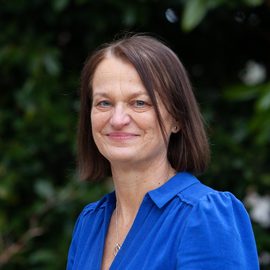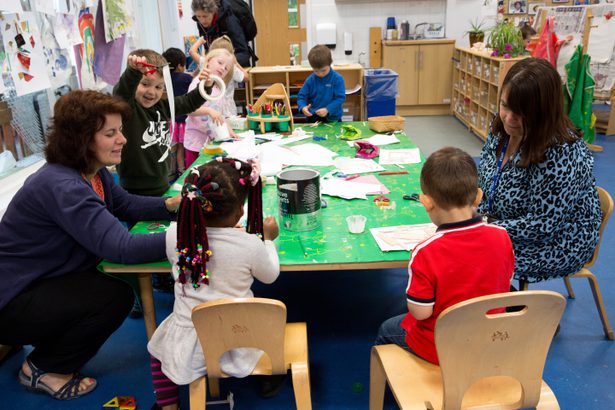Nursery school headteacher, Sally Cave considers how a Froebelian approach to coaching can support educators working in early childhood education and care today.
As Froebelians, we believe that:
- children deserve and need nurturing, knowledgeable and reflective educators
- educators that are nurturing, knowledgeable and reflective are not born. They need to be grown and to grow.
School and setting leaders may wish to consider how they lead in order for children to have knowledgeable, nurturing and reflective educators.
I suggest that Froebelian principles can show us the way.
I wanted to educate people to be free, to think, to take action for themselves.
What is coaching?
Coaching is the art of facilitating another person’s learning, development, well-being and performance. Coaching raises self-awareness and identifies choices.
Through coaching people are able to find their own solutions, develop their own skills and change their own attitudes and behaviours. The whole aim of coaching is to close the gap between people’s potential and their current state.
The principles of coaching are:
- The client is resourceful.
- The coach’s role is to enable the client to access their resourcefulness.
- Coaching addresses the whole person.
- The client sets the agenda.
- The coach and client are equals.
- Coaching is about change.
The community is enriched by the diversity and uniqueness of individuals.
Relationships matter - a Froebelian approach to coaching
I love every aspect of coaching because it suits me as an individual; it resonates with my values as a Froebelian leader and learner. Being a coach works for me because I believe in the competence and capability of people; I love the development of a relationship. Relationships matter.
When I am the coachee or client much the same applies, plus I have autonomy, no-one is telling me what to do! Coaching gives me freedom to explore my thinking with the coach available to provide guidance in the form of open, thought-provoking questioning. I think Froebel would have concurred with the principle of coaching in that we all have the solutions within us, we just need to engage with someone else who can facilitate and guide where and when appropriate.
A key Froebelian principle is starting where the learner is and coaching does exactly that for the educator. In a coaching conversation, it is the educator (client) who sets the agenda. The coach is responsible for supporting the educator to reflect, to become more self-aware. Adults are no different to children in that we all learn best by doing things for ourselves and from becoming more aware of our own learning.
An effective coaching conversation involves two adults playing. Rehearsing ideas, feelings, and thoughts. The coach supports the educator in making their inner, outer. Reflecting in this way helps the educator to consider alternative ways of thinking about their lived experiences with the children in their care.
Quite often an educator will suggest that the coaching conversation takes place outside. There are two main reasons given for this choice: the educator feels more comfortable and calmer outside in nature. Secondly it is often easier to think, reflect and struggle with new and alternative ideas when you are side by side with someone else rather than face to face.
The art of reflecting truly supports each of us in becoming more self-aware. We all think about our practice and pedagogy (inner) but talking it through (outer) with a coach enables a deeper awareness of oneself, of our relationships with others and our place in the world.
Further information about coaching
References and useful links

About the author
Sally Cave is Headteacher at Guildford Nursery School and Family Centre where Froebelian principles guide her work with children, parents and staff. She is one of the leaders of The Froebel Partnership (a three year Froebel Trust funded project) and is also a Froebel Trust Travelling Tutor delivering Short Courses in schools and settings across the UK.
She created this short article during the Froebel Trust's Writing Workshop held in Summer 2022.
You can listen to Sally sharing her experience as a Froebelian nursery school leader in the Froebel Trust podcast (episodes 1-3).
Support for educators
Take a look at our list of organisations offering support and information for everyone interested in Froebelian practice.
Find out more

